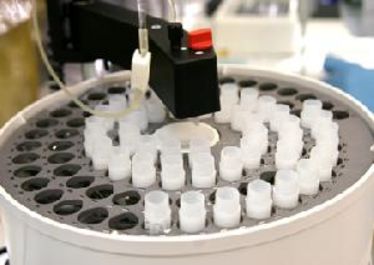Vorlesung von Jonas Korlach (Menlo Park, USA): Microbial Genome Analysis by Single-Molecule, Real-Time (SMRT) DNA Sequencing
Das Institut für Medizinische Mikrobiologie lädt zusammen mit den Instituten für Hygiene, für Experimentelle Pathologie, Medizinische Biochemie und dem Leibnitz-Institut für Arterioskleroseforschung zu einer hochkarätigen Vorlesung ein.
Um 15.00 Uhr c.t. spricht im Hörsaal des Instituts für Medizinische Mikrobiologie (Domagkstraße 10) Herr Jonas Korlach aus dem Pacific Biosciences in Menlo Park (Californien, USA) zum Thema: "Microbial Genome Analysis by Single-Molecule, Real-Time (SMRT) DNA Sequencing".
Single-Molecule Real-Time (SMRT®) DNA sequencing is unique in that nucleotide incorporation events are monitored in real time, leading to a wealth of kinetic information in addition to the extraction of the primary DNA sequence. The power of this new sequencing technology - characterized by long readlengths and fast run times - is highlighted through examples from diverse applications, such as finishing genomes (de novo hybrid assembly), targeted resequencing of difficult to sequence regions like GC- or AT-rich, characterizing transcript and gene fusion diversity, rapid pathogen sequencing, and the direct detection of epigenetic base modifications. By using the kinetic information during Real-Time DNA Sequencing we can detect and discriminate nearly every known chemical DNA base modification as a by-product of ordinary sequencing.
This new capability allows for the characterization of the methylome of microorganisms by directly sequencing the three common prokaryotic epigenetic base modifications of 4-methylcytosine, 5-methylcytosine and 6-methyladenine, and elucidate the activities of known and novel methyltransferases.
I will highlight a first application by exploring the methylome of the German outbreak O104:H4 E. coli strain, and show how the methylation changes may directly affect pathogenicity of this organism. These studies represent the first time this type of base modification profiling in microbes has been characterized at the whole-genome scale with single-nucleotide resolution.
Alle Interessierten sind herzlich eingeladen.
Um 15.00 Uhr c.t. spricht im Hörsaal des Instituts für Medizinische Mikrobiologie (Domagkstraße 10) Herr Jonas Korlach aus dem Pacific Biosciences in Menlo Park (Californien, USA) zum Thema: "Microbial Genome Analysis by Single-Molecule, Real-Time (SMRT) DNA Sequencing".
Single-Molecule Real-Time (SMRT®) DNA sequencing is unique in that nucleotide incorporation events are monitored in real time, leading to a wealth of kinetic information in addition to the extraction of the primary DNA sequence. The power of this new sequencing technology - characterized by long readlengths and fast run times - is highlighted through examples from diverse applications, such as finishing genomes (de novo hybrid assembly), targeted resequencing of difficult to sequence regions like GC- or AT-rich, characterizing transcript and gene fusion diversity, rapid pathogen sequencing, and the direct detection of epigenetic base modifications. By using the kinetic information during Real-Time DNA Sequencing we can detect and discriminate nearly every known chemical DNA base modification as a by-product of ordinary sequencing.
This new capability allows for the characterization of the methylome of microorganisms by directly sequencing the three common prokaryotic epigenetic base modifications of 4-methylcytosine, 5-methylcytosine and 6-methyladenine, and elucidate the activities of known and novel methyltransferases.
I will highlight a first application by exploring the methylome of the German outbreak O104:H4 E. coli strain, and show how the methylation changes may directly affect pathogenicity of this organism. These studies represent the first time this type of base modification profiling in microbes has been characterized at the whole-genome scale with single-nucleotide resolution.
Alle Interessierten sind herzlich eingeladen.
Termin in lokalen Kalender importieren
Dieser Termin wurde eingetragen über ein "offenes Konto". Sie möchten für Ihre Einrichtung hier auch Termine eingeben? Einfach Mail senden an medizin.fak@uni-muenster.de.


